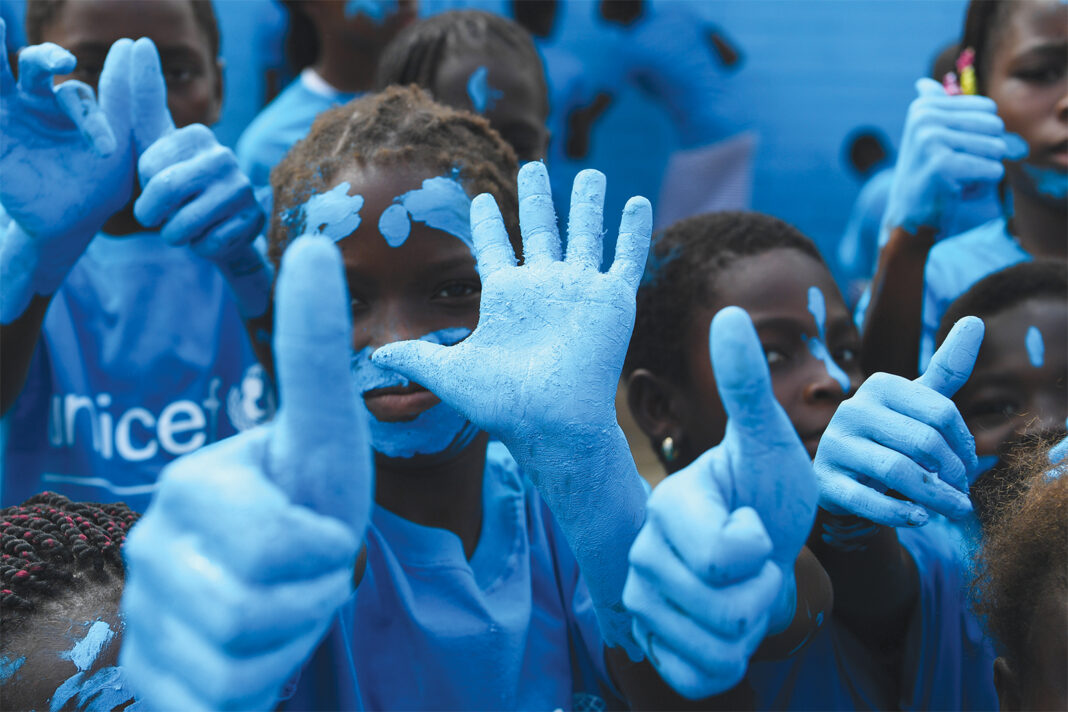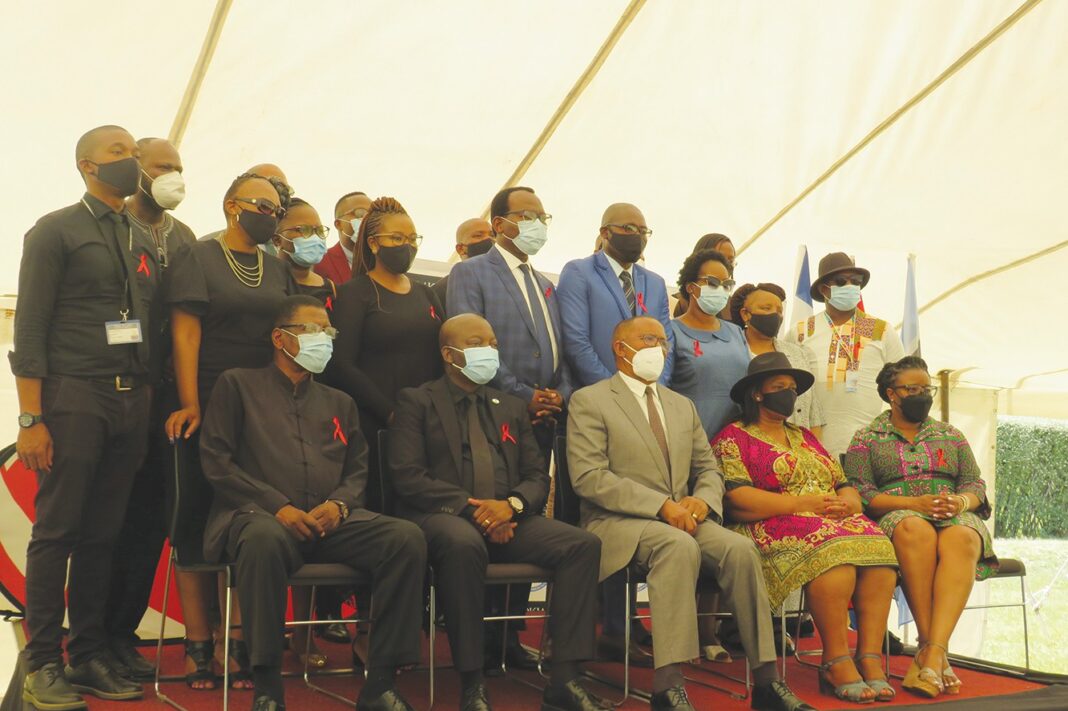By Anurita Bains
November 20 2021 is a day when we not only celebrate World Children’s Day but also recommit ourselves to ensure a better future for our children. It is well established that the key to a better future for children and any country lies in quality education. It is no different for Lesotho, a demographically young lower-middle-income country with nearly 40 percent of its population below 18 years.

However, the country faces many challenges. Despite the impressive primary school enrolment rates with nearly 9 out of 10 children in school, the same is not true for secondary where only 4 out of ten are in school. Moreover, we know that only 4 out of ten children who enter school attend pre-primary education and enter schools better equipped to learn. According to the World Bank 2020 Human Capital Index Report, children will spend an average of ten years in school. However, 40 percent of those will not have the foundation to count for effective learning. The situation has been further exacerbated with the COVID-19 Pandemic.
As is the case in all countries, the COVID 19 pandemic led to school closures in Lesotho. The school closures have left almost half a million children and adolescents without access to learning which amounts to an uncertain future for each of those children. Between March 2020 and April 2021 alone, children in Lesotho lost around 140-160 school days of learning!
For children in Lesotho, the impact of the Pandemic was further intensified because of the 2019 teacher strikes, which had already resulted in learning losses. All of this loss cannot fully be measured in terms of the immediate impact on children and long-term impact on communities and the country. Shoeshoe Moroeng, a 12-year-old learner from Mohale’s Hoek, mentioned that catching up with learning has been the hardest challenge since schools reopened. Mpho Mathibeli, a 17-year-old from Makena High School in Mafeteng, shared the same sentiments and added, “I am worried that I may not perform well in my exams, which may mean I have to choose another course not of my liking after graduating from high school.”
After the initial shock of sudden school closure in 2020, the Ministry of Education and Training (MOET) put in place measures to ensure continuity of learning. Radio and television classes on math and science, reading and writing, awareness on COVID prevention measures, and the importance of psychosocial well-being of children were important lessons for children, but it was not enough. The Ministry led efforts to reopen schools safely and keep them open. This is commendable. The Pandemic exposed the fragilities of the education system in Lesotho. We learned a hard lesson – that the conventional school system is neither shock-resistant nor responsive to uncertainties. However, the Pandemic has also presented a huge opportunity for us to reimagine what learning could and should be.
What needs to be done to turn the tide and enable a better future for children and adolescents?
Here are some specific and practical suggestions so that Lesotho can make progress towards Sustainable Development Goal 4 and ensure quality education and lifelong learning.
- Expand pre-school education: Early childhood education sets the foundation for lifelong learning.Qualityearly childhood education should be available to all 5-year olds so that they are prepared and ready to start primary school.
- Child-centered agile school systems: Schools must look beyond the confines of the classroom and adopt a blended approach that supports children and adolescents to learn in face-to-face settings like in a classroom and remotely, at home, or in a community center. This will enable a seamless switch to remote learning as necessary.
- Digital skills and learning: A critical 21st-century skill is the ability for children and adolescents to manage and navigate an increasingly digital world. This requires a conscious move towards digital learning as part of schooling. Through the learning passport, children can enhance their digital skills while also having access to learning content that complements classroom learning resources.
Along with preparing children, we need to support teachers in gaining new skills and competencies in digital learning so that they are well equipped to teach children and adolescents.
Lastly, our investment in education is critical to making progress. We must protect the education budget and increase investments in education. We must ensure investments in the education sector are equitable and well-allocated. Currently, less than 1 percent of the education budget supports early childhood education, yet we know the return on this investment is great for the child and the country.
Better learning for children, a shock-responsive education system, and a bright future for children and adolescents in Lesotho requires focus and urgent action. What is taught within the four walls of the classroom must be high-quality, dynamic, and evolving with the changing environment, and learning must go beyond those four walls. Learning must reach all children wherever they are – whether under a tree in a rural area, at home on the radio, or on a tablet in the community. So on this World Children’s Day, let us commit to building back better so that all Basotho children and adolescents can take and contribute to the future of Lesotho and assume their role as active global citizens.
*Anurita Bains is UNICEF Lesotho Representative









